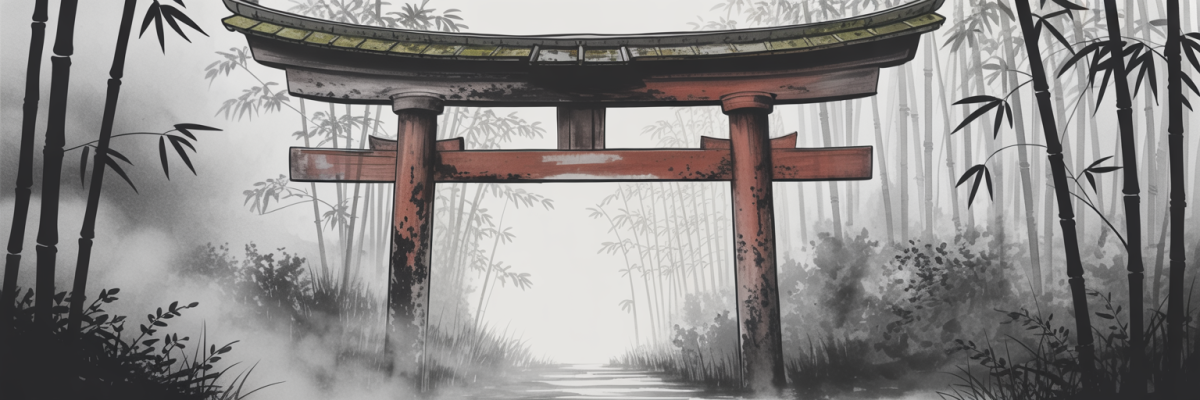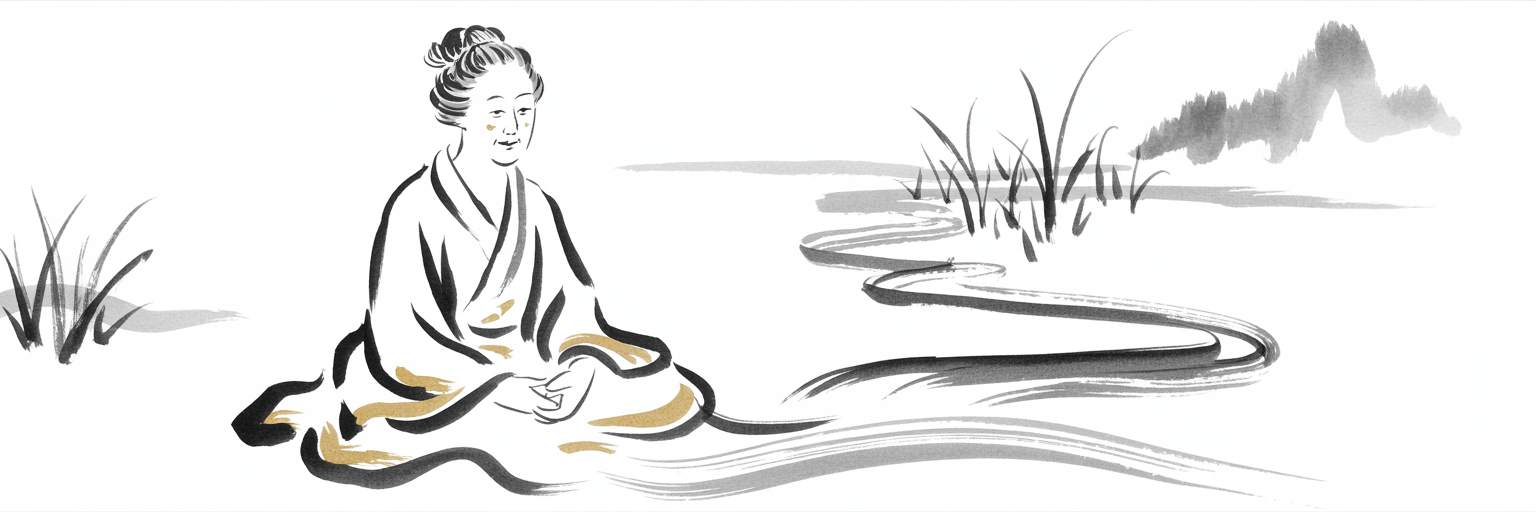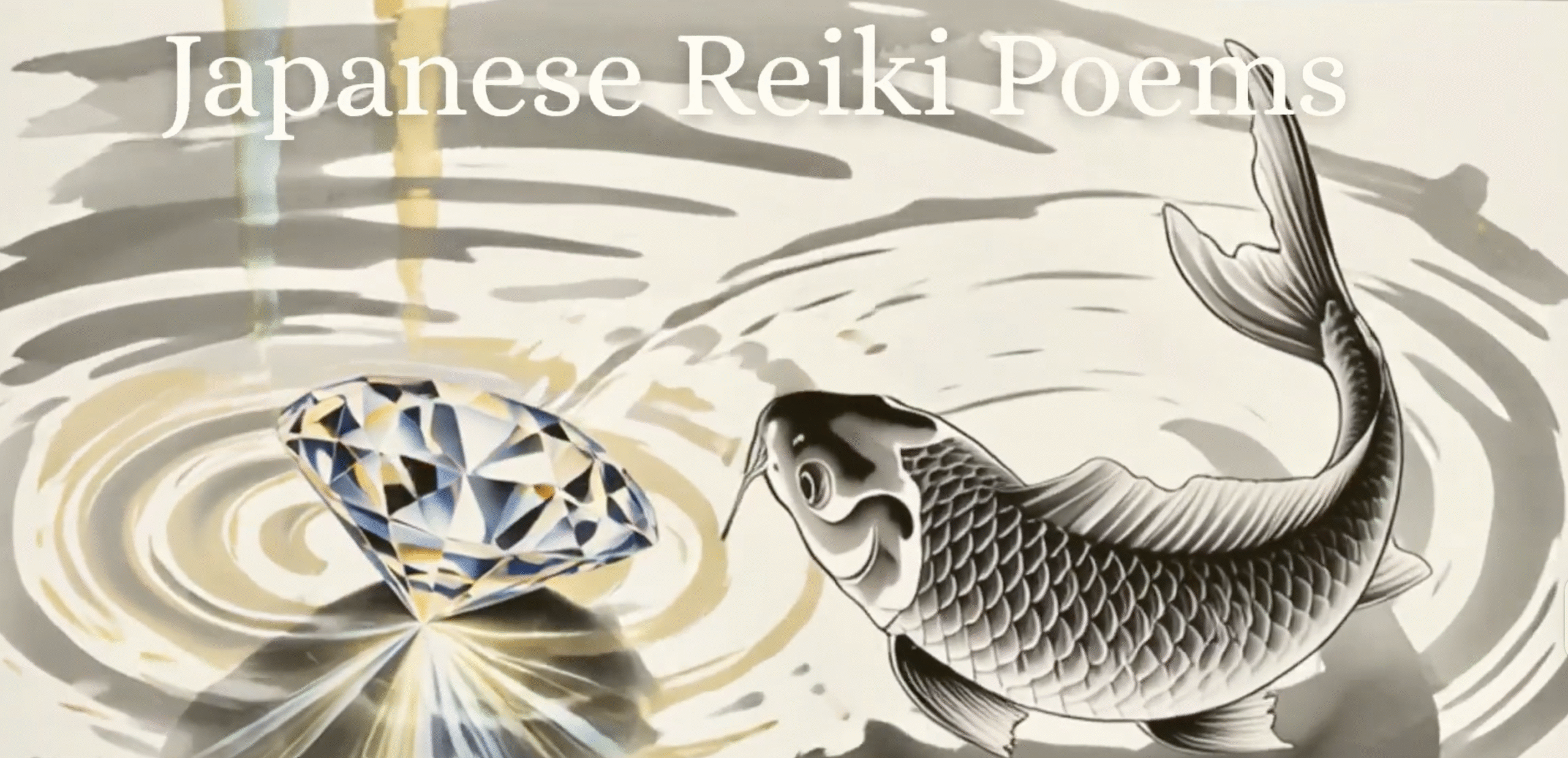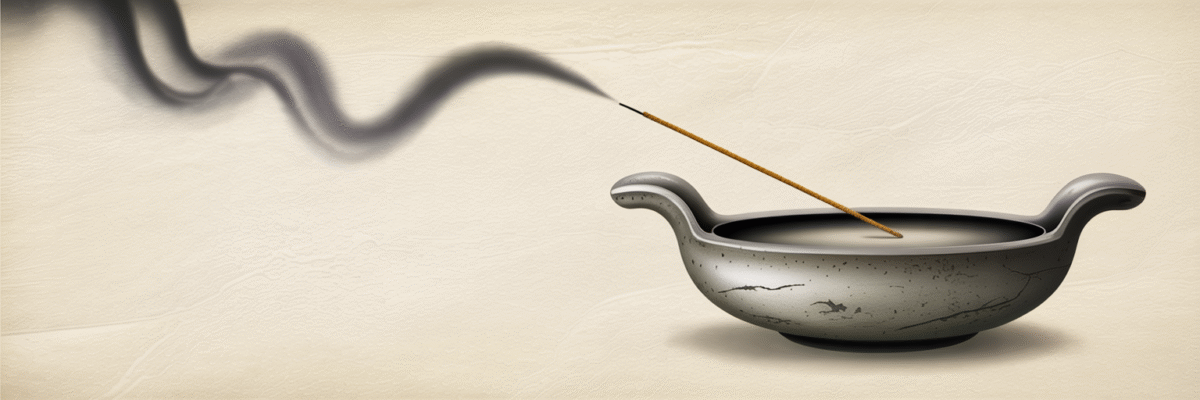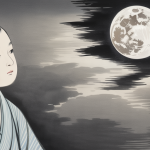
The Samurai Origins of Reiki
May 6, 2025
The Art of Not Beaming Reiki
May 29, 2025I’ve been sitting with the Usui Memorial stone text lately, and feeling particularly drawn to a word that appears repeatedly throughout: 霊法 (reihō) or “spiritual method.” The character 霊 (rei) shows up again and again, and it’s got me thinking about what “spiritual” actually means – not just as a translated word, but as a lived experience
What does it mean to be spiritual? And more importantly, how does our understanding of this word fundamentally shape the experience of our Reiki practice?
Lost in Translation
I remember the first time I really looked at the kanji for Reiki: 霊気. It tells the story of the beginning of the universe and the innate play of Earth, Heavens and humanity.
The first character, 霊 (rei), is typically translated as “spiritual”. But what does “spiritual” mean in a Japanese context versus how we understand it in the West?
This isn’t just semantic nitpicking. The difference shapes everything about how we approach our practice.
Two Worlds of Spirituality
In Western culture, spirituality often involves reaching for something beyond ourselves. We “raise” our vibration, we “ascend,” we try to “transcend” our limitations. There’s an implicit understanding that to be spiritual means to reach for something we currently are not. Our spiritual journey becomes a quest to transform ourselves from mundane to sacred.
But in traditional Japanese understanding, the approach is entirely different.
The Japanese concept embedded in 霊 (rei) doesn’t distinguish so sharply between the mundane and sacred. Spirituality isn’t something to achieve or somewhere to go; it’s something to remember, to uncover, to simply be.
Rather than reaching for spirituality, Japanese tradition sees it as already inherent within everything. This immanence, reflected in Shinto beliefs that influence the system, means we don’t need to become spiritual—we need to recognize what already is. According to Shinto wisdom, our true nature is an indwelling kami, a sacred presence that we don’t need to seek but rather remember and tend to through our spiritual practice.
In Japan, spirituality is about embodying practice and awareness rather than belief systems. The “spiritual method” (霊法) focuses on discipline and direct experience, not doctrine. What you do matters more than what you believe.
Japanese spirituality also values subtle awareness over dramatic emotional experiences or revelations. The practice isn’t about feeling spectacular sensations but noticing the ordinary with extraordinary attention.
There’s little separation between spiritual and physical in the Japanese practice. Ki naturally bridges material and immaterial worlds without contradiction. The sacred isn’t somewhere else—it’s right here in everyday life.
This plays out in how we practice.
Hands as Reminders
Take the popular Reiki practice of teate, hands on healing, as an example. When I place my hands on someone in a Western context, I might be focused on “channeling energy,” “clearing blockages,” or “sending healing.” There’s an implicit goal, an active doing.
But in the Japanese understanding of the system, placing hands on the body becomes something else entirely – a practical reminder of our innate wholeness. Our hands don’t “fix” anything; they simply remind both giver and receiver of what’s already true.
Try this right now.
Place your hands somewhere on your body – wherever feels natural.
Don’t try to make anything happen.
Don’t try to feel energy.
Don’t try to heal yourself.
Just place your hands and remember that you are a perfectly imperfect balance of body, mind, and breath. Feel the humanity of your hands, the rhythm of your breathing, the subtle pulsing of life within you.
This simple act contains the essence of 霊 (rei) – not as something mystical or separate from everyday life, but as the recognition of what already is.
The Wisdom of Not Doing
In the Western spiritual paradigm, we often evaluate our spiritual progress by what we’re doing, achieving, or experiencing. But in the Japanese understanding of 霊 (rei), the measure is often what we’re letting go of, what we’re ceasing to do.
We don’t need to make ourselves better. We need to let go into the moment and allow ourselves to flow with the natural movement of the universe. Don’t fight it. Just be.
A Practice of Remembering
So when I see 霊 (rei) repeated throughout the Usui Memorial stone, I don’t see it as representing some lofty spiritual state. I see it as a consistent reminder of what’s already true – that the spiritual isn’t somewhere else, it’s right here.
The next time you practice, whether on yourself or others, try approaching it from this perspective. You are not fixing or changing; you’re reminding yourself of your wholeness. Your practice isn’t about becoming something else; it’s about remembering what you already are.
And perhaps in that remembering, we find the true meaning of 霊 (rei) – not as a concept to be understood, but as a reality to be lived.
What does spirituality mean to you? How does your understanding of it shape your practice? I’d love to hear your thoughts.
Listen to a podcast about this subject:


